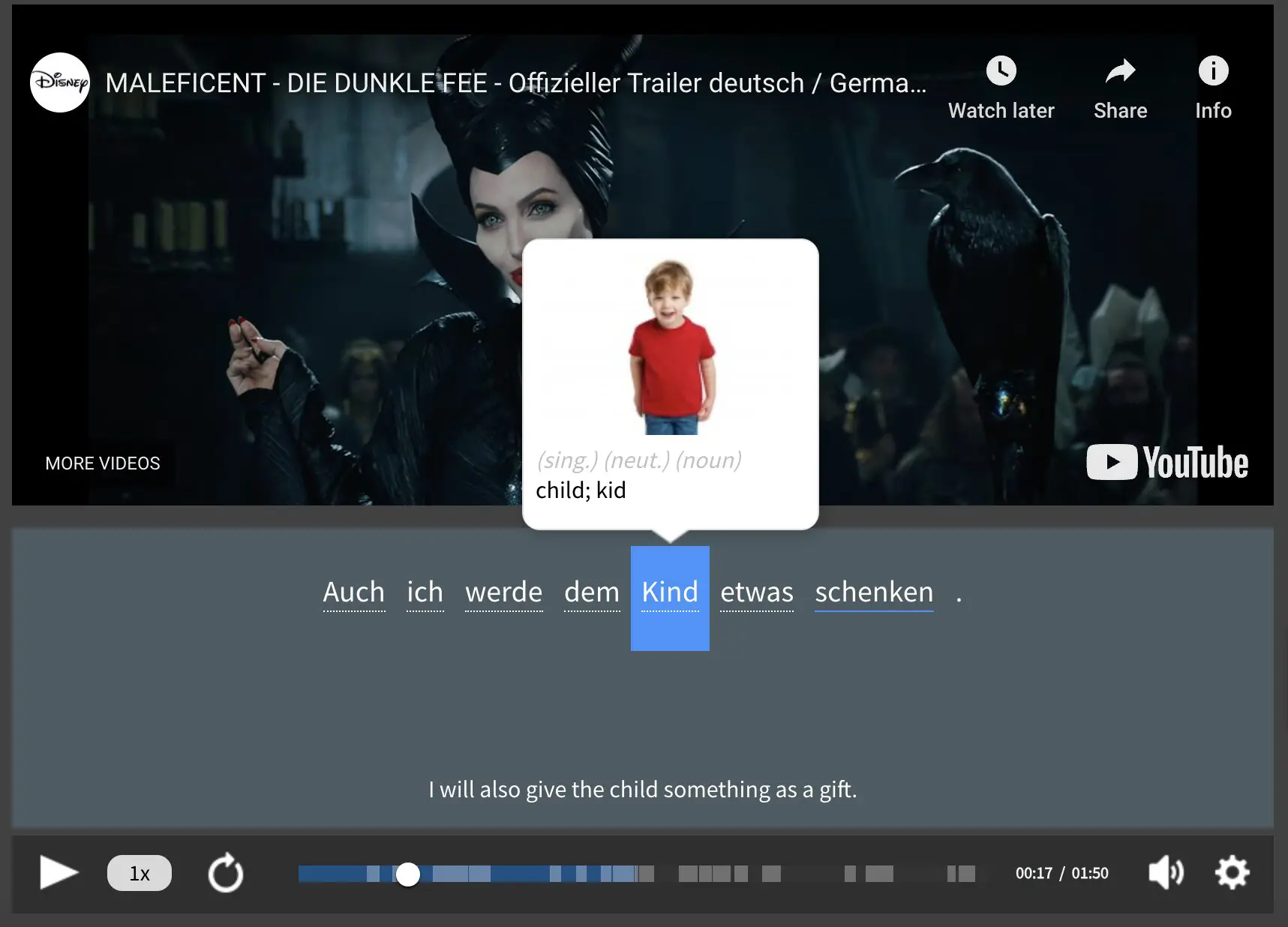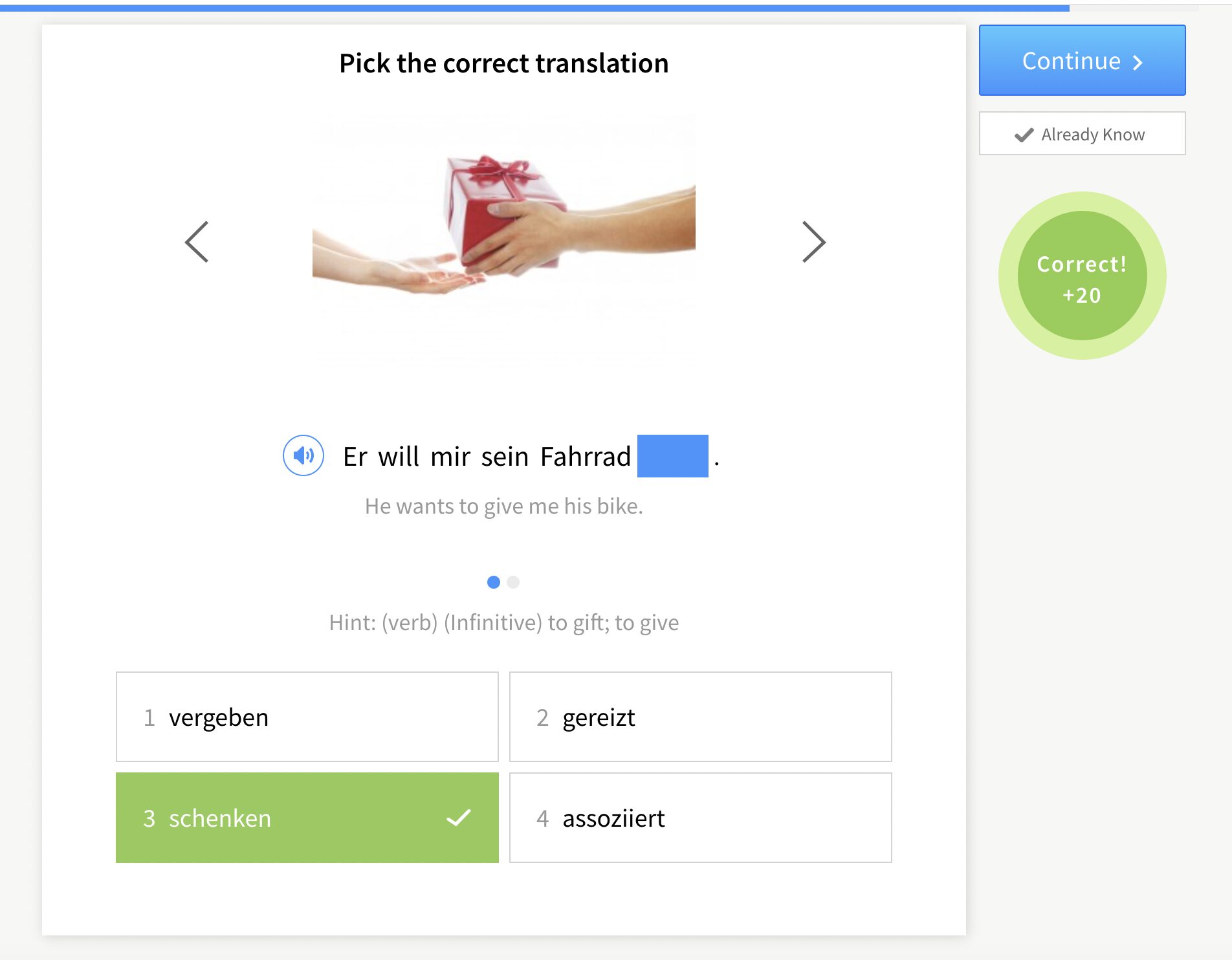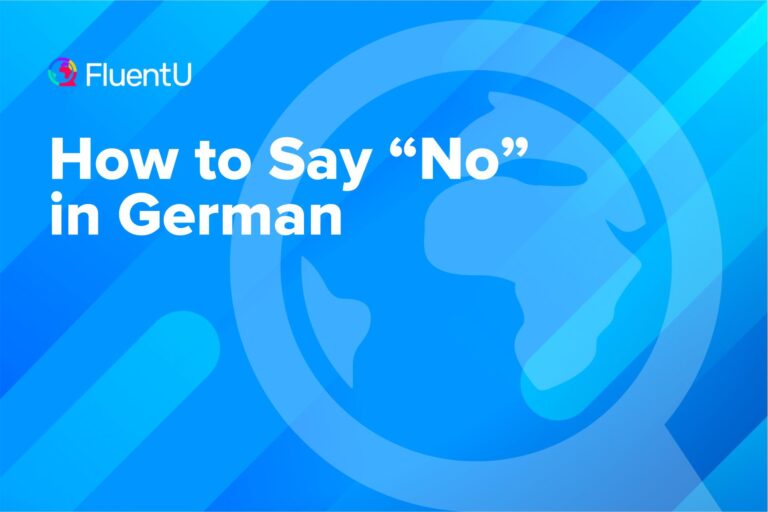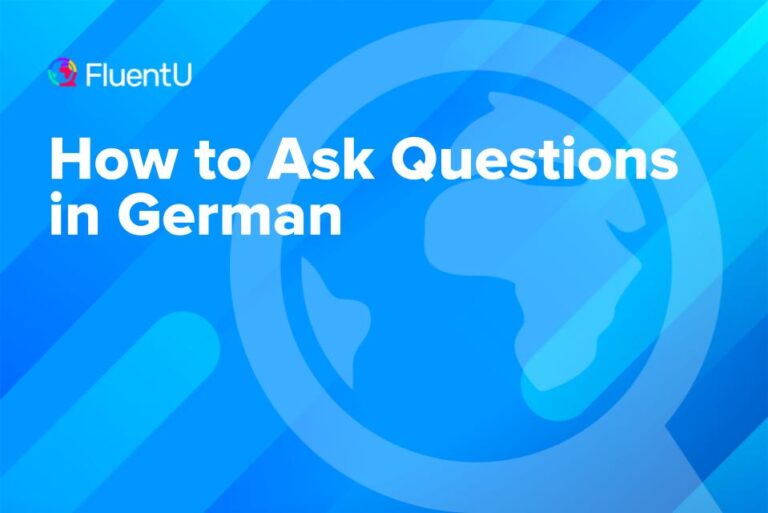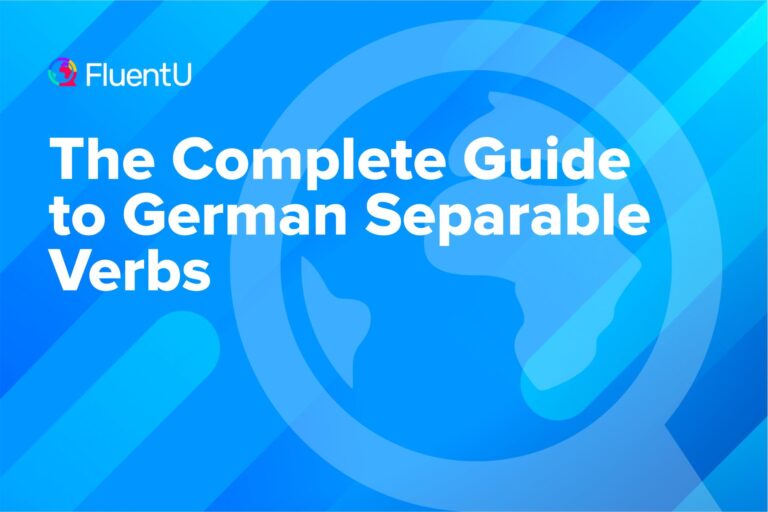12 German Modal Particles

Some of the trickiest words to master in German are Modalpartikeln (modal particles). Modal particles usually have other meanings in different contexts, making using them (and even translating them) a difficult task.
On top of that, they differ from region to region and dialect to dialect, so if you’re speaking with someone in Bayern (Bavaria), their choice of particles will be different than someone from Frankfurt.
While they’re difficult, modal particles are widely used by native German speakers and learning to use them properly will greatly increase your fluency when speaking German.
So check out this post to learn the top 12 modal particles in German, what they mean and how to use them.
We’ve placed them in five handy categories based on that they do. We’ve also included plenty of examples so you can see these words in context.
Download: This blog post is available as a convenient and portable PDF that you can take anywhere. Click here to get a copy. (Download)
Affirmation
1. Aber — Indeed/very
Aber usually mean “indeed” or “however” when used as a conjunction. But when used as a modal particle, it emphasizes a direct statement about something, often with the implication that you are a bit surprised about it.
Du kannst aber richtig gut Deutsch! (Wow, you speak really good German!)
Dein Hund ist aber sehr klug! (Your dog is really smart!)
Du bist aber süß! (Aw, you’re so sweet/cute!)
2. Ja — Yes/quite/indeed
This one is possibly easiest to remember as an affirmation because of its generally translated meaning of “yes.” Here, the implication is that what the speaker is saying is already known to everyone listening. It sort of encapsulates the phrases “of course”, “as we all know”, “as I’ve already said”, “as you can see”.
Sein Geburtstag ist ja wichtig! (His birthday is important [of course]!)
Er ist ja ganz begabt aber doch sehr faul. (He is very gifted [as we all know], but very lazy.)
3. Wohl — Assumption of truth
Wohl is a very tricky particle to use because it’s usually translated to mean “well,” as in the phrase Ich fühle mich wohl (I feel well). However, as a particle it emphasises that the speaker is making an assumption or supposition. We can often translate this to be: “I guess”, “looks like,” “presumably” or “probably”.
Klaus isst nie Fleisch, er ist wohl Vegetarier. (Klaus never eats meat, he is [presumably] vegetarian.)
In this sentence, the wohl signifies that the speaker does not for certain know Klaus is vegetarian, but since he never eats meat, the speaker is assuming it to be true.
It can also be used in an ironic context, when the speaker does know something to be the case, or wants to imply that it’s the case.
Er hat sich einen Porsche gekauft. (He bought himself a Porsche.)
Er will wohl jemanden beeindrucken. (Looks like he needs to impress someone.)
Negation
4. Nicht — Not
The German particle nicht translates to “not” in English. It is used to negate a statement or to indicate the absence or negation of something. Nicht is a very common and important word in the German language, as it is used to form negative sentences and to provide contrast or negation in various contexts.
Ich habe nicht geschlafen. (I did not sleep.)
Das Buch ist nicht hier. (The book is not here.)
5. Doch — Refuting a negative/emphasis
Ah, doch. It sometimes seems like this word is used so often just because it’s so hard to translate. In fact, it simply does not have a one-word English equivalent.
Perhaps its most common usage is a way of refuting a previous negative assertion. For example, if someone were to ask if you didn’t pass an exam, you could use doch to reject this assumption—you did!
Du hast die Deutsch-Prüfung nicht bestanden? (You didn’t pass the German exam?)
Doch, mit Bravour! (No, I did, with flying colors!)
The best way to remember this can be to think of a children’s argument:
Nein! Doch! Nein! Doch! (No! Yeah! Nuh-uh! Ya-huh!)
Carrying on with the theme of negation, it can also be used to emphasize when you think you are right about something, sometimes even conveying impatience or exasperation. This can often be conveyed in English with a “do” or a “did”:
Ich habe dir doch gesagt, dass die Party am Samstag ist! (I did tell you the party was on Saturday!)
Mach das Fenster auf. (Open the window.)
Habe ich doch schon! (I did already!)
Moving away from the world of negatives, doch can also be used when giving commands in order to emphasize them. If you combine it with bitte or mal, this will often make them sound more friendly, inviting or encouraging:
Komm doch mal zur Party! (Come on, come to the party!)
Setzen Sie sich doch bitte! (Please, take a seat.)
But if you use it with endlich (finally, already), the doch can suddenly change to be demanding or reproachful:
Hör doch endlich auf! Ich will nicht spielen! (Stop it already! I don’t want to play!)
Lastly, it can even be used similarly to aber to convey shock or outrage:
Es ist doch so ruhig hier! (It’s so quiet here!)
Whilst this certainly isn’t an exhaustive list of all the wild and wonderful meanings of doch, I’ve hopefully demystified it at least somewhat!
6. Halt — Only/just
While not quite as common as the previous particles, halt is one that’s still important to understand. When it’s used, it shows the speaker attempting to displace blame or burden onto another force. Depending on who’s speaking, though, you might hear halt all the time (think of, like, the often ridiculed valley girl).
Alter, du hast mein ganzes Schnitzel aufgefessen! (Dude, you ate my whole schnitzel!)
Ich hatte halt Hunger! (What can I say, I was hungry!)
Wie hat sie denn darauf reagiert? (How did she react, then?)
Sie war halt richtig sauer. (She was, like, totally peeved.)
Intensification
These particles exaggerate or intensify. They may be used to draw emphasis to something or to illustrate the significance or importance of part of a sentence.
7. Schon — Really/very/do
Schon can be used to intensify the message that’s being conveyed:
Das schaffst du schon! (You’ve got this!)
It can also be used to imply a sense of anger. It can often be conveyed in English either with emphasis or a well placed “really”, “very” or “do”.
Du hast schon Glück gehabt, dass du bei dem Unfall nicht verletzt wurdest! (You really are lucky that you didn’t get injured in the accident!)
Gib mir schon das Geld! (Give me the money!)
8. Mal — Really/a little
This one conveys a sense of interest, and can be used as a suggestion. It can also soften commands or make things sound less formal or blunt.
Hörst du mal gern Reggae-Musik? (Do you like to listen to reggae music?)
Moment mal, ich bin müde! (Give me a minute, I’m tired!)
9. Nun — So/well/now
Nun is often used with questions to show an intensification or possibly impatient towards what is being asked.
Glaubst du mir nun endlich? (So, do you believe me at last?)
Hast du die Prüfung nun bestanden oder nicht?! (So did you pass the exam or not?!)
10. Denn — So/then/still
Used almost exclusively to convey a subtle interest in something, denn is an excellent particle to use on first dates! Depending on how you say it, however, the word can also add annoyance or anger to a sentence. Don’t worry, though, if you’re speaking with the right tone of voice, nobody will ever get confused.
Wo hast du denn Russisch gelernt? (So, where did you learn Russian?)
Was machst du denn mit dem Einhorn? (What are you doing with that unicorn?)
Bist du denn immer noch nicht fertig?! (Are you still not finished?)
11. Eben — Just/simply/well/so
The German particle eben is a versatile word that can have a few different meanings depending on the context in which it is used. Here are the three main meanings of eben:
- Just/exactly: Eben can be used to express that something happened just now or that something is exactly as stated.
Ich habe ihn eben gesehen. (I saw him just now.)
- Simply/just: Eben can also be used to imply that famous German straightforwardness.
So ist es eben. (That’s just the way it is.)
- Exactly/Yes/No: In some cases, eben can be used to emphasize an opinion that you’ve perhaps been holding back, or others have been ignoring.
Das finde ich völlig unverschämt! (I find totally outrageous!)
Eben! (Exactly!)
Finality
12. Schlieβich — After all/finally
Schließlich often translates to “after all”. It is used to convey a sense that the stated fact is an important thing to consider.
Du solltest mir ihr reden, schließlich ist sie deine Schwester. (You should speak with her, she’s your sister, after all.
Nein! Ich werde mich ganz bestimmt nicht entschuldigen, schließlich habe ich den Streit nicht angefangen. (No! I will definitely not be apologizing, I didn’t start the argument, after all.)
To see and hear these German modal particles used in context by native speakers, you can check out search for them in FluentU’s video library.
FluentU takes authentic videos—like music videos, movie trailers, news and inspiring talks—and turns them into personalized language learning lessons.
You can try FluentU for free for 2 weeks. Check out the website or download the iOS app or Android app.
P.S. Click here to take advantage of our current sale! (Expires at the end of this month.)
What Are German Modal Particles?
Modal particles, also commonly just called “particles,” are words that don’t change grammatical meaning but still add a conditional change to a sentence.
They are, in a sense, flavoring words that add a sense of emotion or attitude to what is being said. In German, these could be words that soften the harshness of a comment, add a persuasive or suggestive element to a request or otherwise add subtle meaning to a sentence without changing the grammatical context.
There are often rarely neat, direct translations of German particles into English, making them difficult for learners to study. Where German would use a modal particle, in English we often convey the same sense of emotion purely by emphasizing a specific word in the sentence. For example:
“What do you mean?” – Putting the emphasis on the mean creates a sense of exasperation.
In German, instead of this, you might use a modal particle like denn to convey this frustration.
Add in the fact that there are differences depending on regional dialect and it can seem like a pretty intimidating concept. But don’t give up! Particles are some of the most fun words to use in German, and once you start using them, you won’t be able to stop!
Modal particles can be broken down into a few different types: particles that affirm elements of a sentence, particles that negate or resign elements of a sentence and particles that intensify or highlight elements of a sentence.
How Do German Modal Particles Work?
Most of the time, particles are only used in spoken contexts. However, in the digital age, they’re also commonly used in German social media, due to the informality of the medium, so you can take advantage of this in your learning. Particles are likely not going to be used in an academic paper or a formal presentation, unless it’s for added linguistic effect, such as reinforcing the seriousness or urgency of a command.
A lot of the time, the particle will follow the main verb in the sentence—however, some come at the end.
“Die Katze ist ja schon gefüttert worden!” (The cat has already been fed!)
Here, the word ja is being used as a particle, reinforcing the fact that the cat has been fed, and follows the verb. We might convey this in English by putting emphasis on the “been”.
“Versuch’s doch mal!” (Come on, try it!)
This example combines two particles (doch and mal) and is a very commonly used phrase. The usage here makes the demand seem more friendly and familiar.
“Das ist aber ein schönes Geschenk!” (Well this is a nice present!)
In this example, you’ll notice that the word aber, usually “but,” is a lot more flexible than its direct English translation. It can be placed in the sentence differently and has more shades of meaning than the simple English “but.” Here it is being used to emphasise that something was unexpected or surprising.
When spoken, particles remain unstressed, so even though you’re excited to use your favorite particle in a sentence, hold back and don’t stress it—just throw it in there to add an extra flare to your speech. Native speakers will take notice, trust me!
Modal particles can be very tricky to learn, but having an awareness of them will make speaking with and understanding native speakers significantly easier.
The key thing to remember is—context. Modal particles are vague hints at emotion or implications used when speaking, so often you can figure out what the modal particle is doing by using the context of what you’d expect that person to be saying or implying.
As your language skills continue to grow and develop, start using these particles in your conversations!
And remember to pay close attention when talking to native speakers, so you get a better sense of how they’re used.
Download: This blog post is available as a convenient and portable PDF that you can take anywhere. Click here to get a copy. (Download)
And One More Thing...
If you're like me and enjoy learning German through movies and other media, you should check out FluentU. With FluentU, you can turn any subtitled content on YouTube or Netflix into an engaging language lesson.
I also love that FluentU has a huge library of videos picked specifically for German learners. No more searching for good content—it's all in one place!
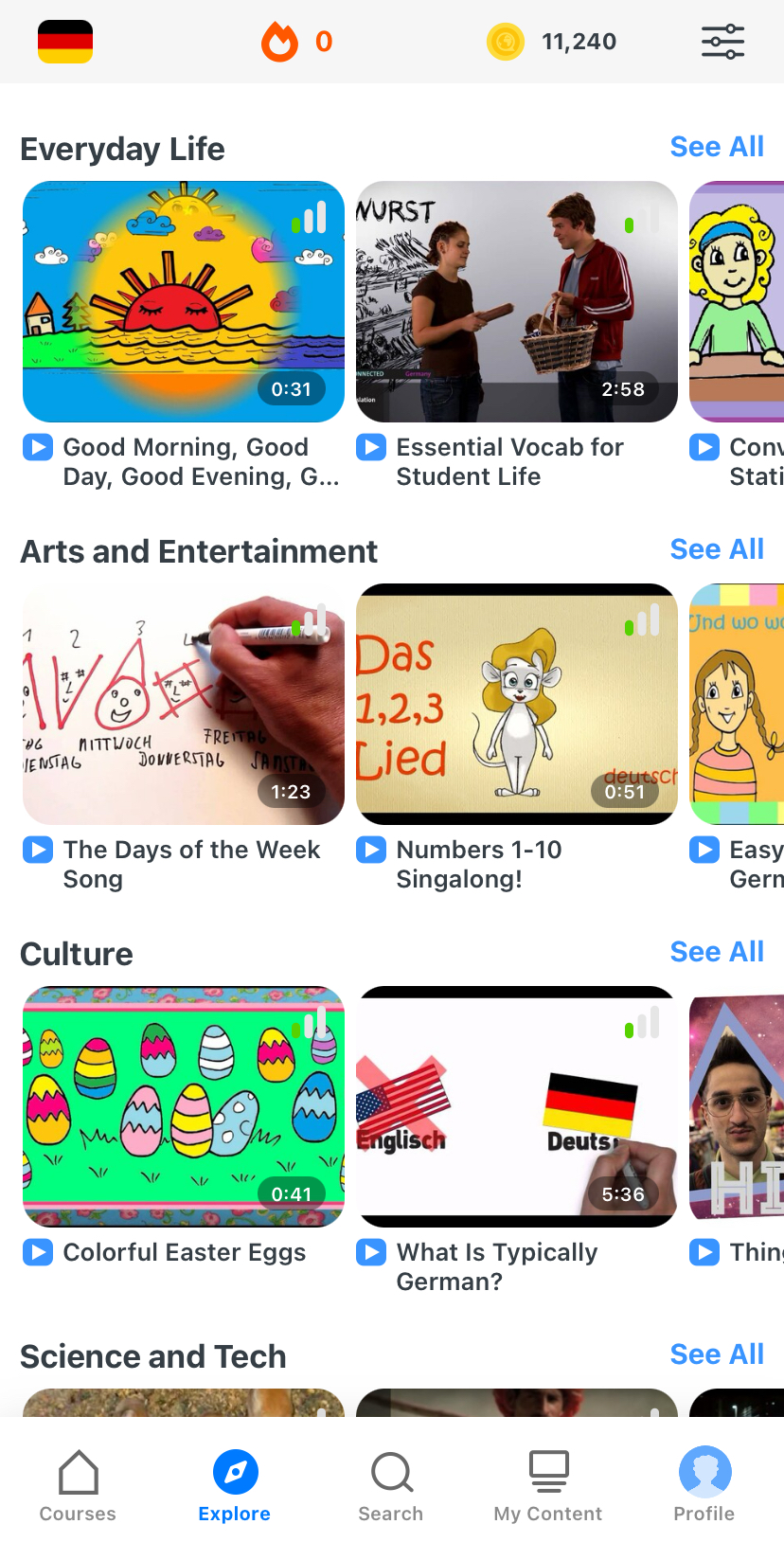
One of my favorite features is the interactive captions. You can tap on any word to see an image, definition, and examples, which makes it so much easier to understand and remember.
And if you're worried about forgetting new words, FluentU has you covered. You'll complete fun exercises to reinforce vocabulary and be reminded when it’s time to review, so you actually retain what you’ve learned.
You can use FluentU on your computer or tablet, or download the app from the App Store or Google Play. Click here to take advantage of our current sale! (Expires at the end of this month.)

